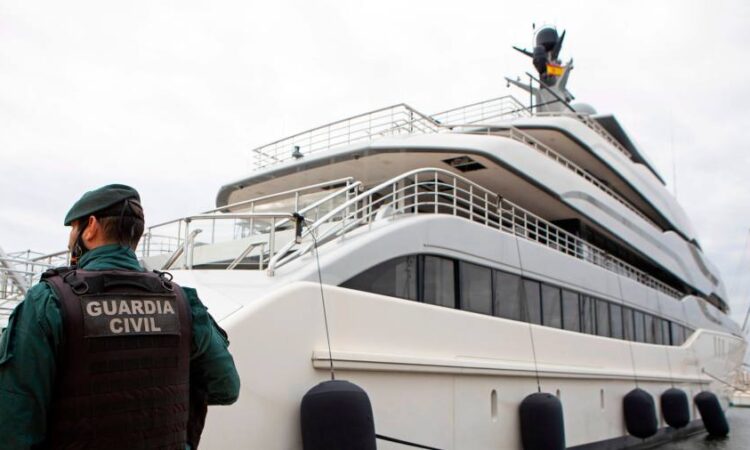
EU countries have agreed a draft law to facilitate seizing the assets of Russian oligarchs and other individuals or institutions accused of circumventing the bloc’s sanctions against Moscow over the war in Ukraine.
In a move that could hit European financial institutions, justice ministers on Friday approved measures criminalising the act of helping sanctioned individuals to bypass travel bans, trade banned goods or conduct transactions with sanctioned states or entities.
This “will give the member states new tools to follow up the sanctions”, Swedish justice minister Gunnar Strömmer told the Financial Times.
The measures would hit banks that have dealings with sanctioned individuals, entities or states. Strömmer said “financial institutions in the member states” were the target, adding that sanctioned individuals would also be hit.
The EU has been working to find ways to use frozen Russian assets to help Ukraine in its war effort and finance its reconstruction. “Discussions are also ongoing on the use of Russian sovereign assets to generate resources for Ukraine,” EU justice commissioner Didier Reynders said on Friday.
“To this day, member states have reported over €200bn of immobilised Russian central bank assets under the 10th sanctions package,” Reynders said. This was on top of “€24.3bn in assets held by listed persons and entities being frozen to date”.
One option the EU is looking into is using proceeds from the assets held at clearing houses, which function as the pipelines of the financial system. Institutions such as Euroclear reinvest cash generated by those assets and make a profit that officials are considering siphoning off. Representatives of the member states will discuss this next week ahead of an EU leaders summit at the end of the month, EU officials said.
Meanwhile, the EU is still wrangling over an 11th package of sanctions against Moscow, but the 27 members have so far failed to reach a unanimous agreement despite weeks of debate.
Hungary and Greece are withholding support for the package in response to Kyiv’s move to include some of their companies on a list of entities deemed to be “sponsors” of Russia’s war effort.
Several countries are also uneasy about a proposed mechanism that could allow the EU to target companies in third countries that are deemed to act as middlemen to ship sanctioned goods to Russia. To ease concerns that this could harm diplomatic relations with those countries, a proposed compromise would create a step-by-step procedure, giving targeted companies fair warning to change their practices before being punished.
Ministers on Friday also backed rules to facilitate freezing assets relating to criminal offences more generally, including the circumvention of sanctions, but also organised crime, money laundering, fraud and other offences.
“That will be a very important tool for fighting organised crime in general,” Strömmer said.
Europol estimates that only about 2 per cent of criminal proceeds in the EU are frozen and that about 1 per cent are fully confiscated.
The rules still need to be negotiated with the EU parliament before they can come into force. Talks are due to begin before August, a parliament spokesperson said.
Member state representatives are keen to agree on the package before the summit of EU leaders on June 29.
Additional reporting by Henry Foy in Brussels





